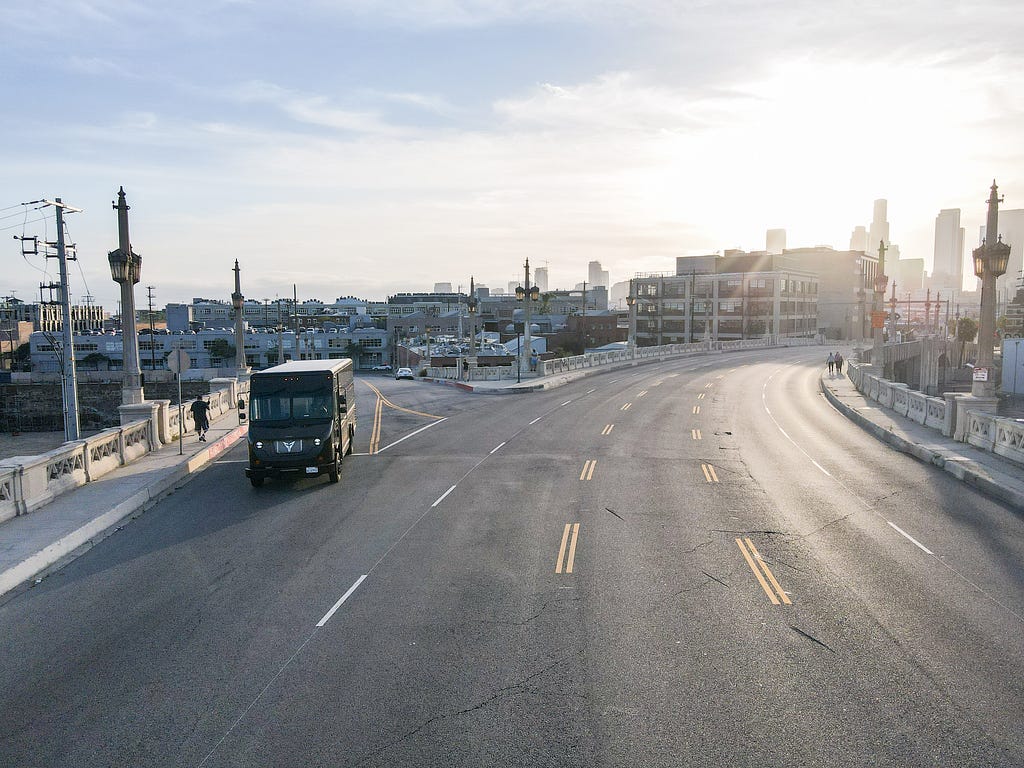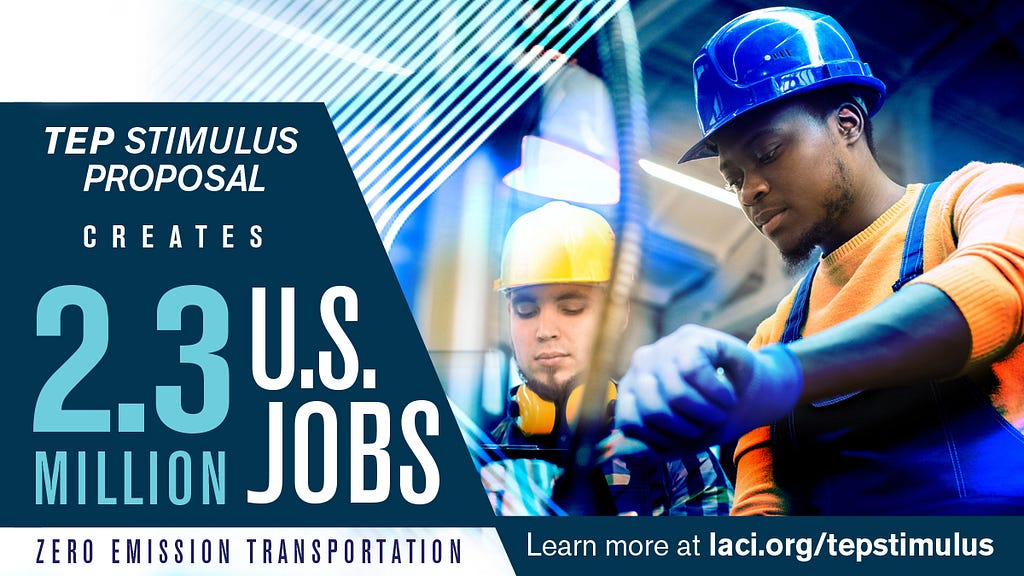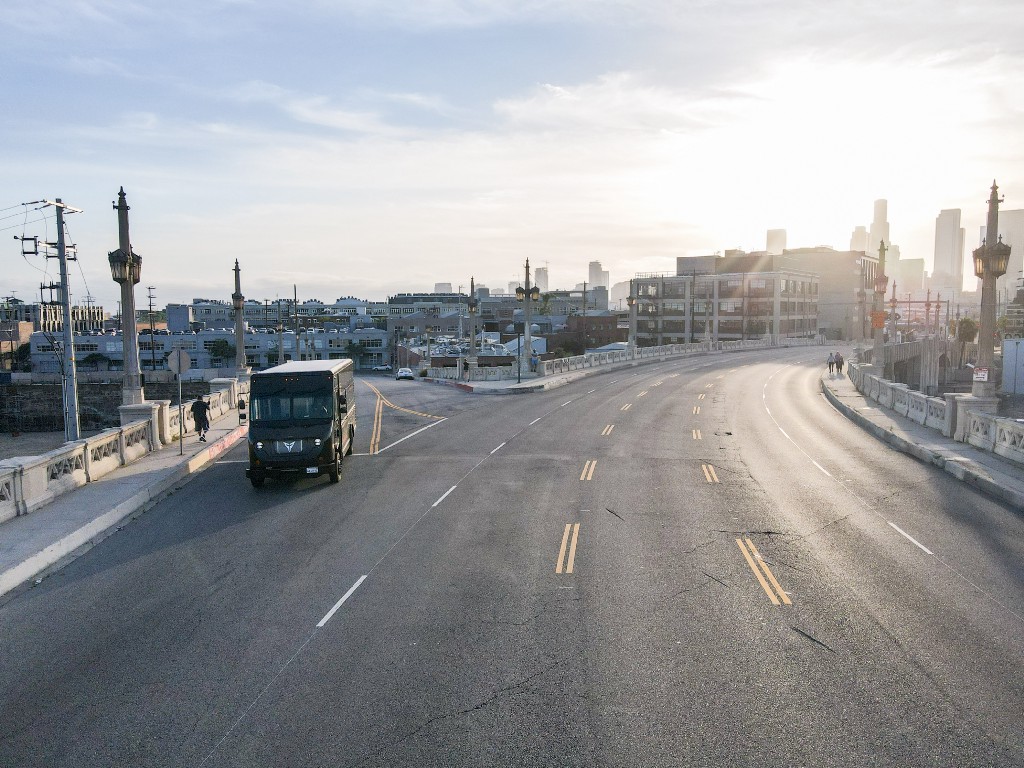
New rule in California = zero-emissions trucks
California adopted a landmark rule last month requiring more than half of all commercial trucks sold in the state to be zero-emissions by 2035 — and all trucks by 2045. There was, to quote Monty Python, “much rejoicing.” Not just here at the Xos, where our Slack channels filled up with party emojis, not just on the floor of our manufacturing shop, where we’ve been building and deploying zero-emissions trucks for companies such as UPS and Loomis, but all around the world.
Transportation accounts for more than 50 percent of California’s greenhouse gas emissions, including upstream sources from petroleum production, according to the California Air Resources Board (CARB). Trucks alone account for 12 percent of total climate-change emissions in the state.
At Xos, we’ve always considered ourselves a triple bottom line brand, which means = we think in terms of three bottom lines: Profit, people and the planet.
While transportation brands traditionally conjure up sleek curves, cool grills and iconic hood ornaments, the Xos brand strives to encompass so much more than that. Yes, we need to think about profits and the profits of our customers, which is why we help fleets save money by flipping them from diesel to zero emissions. But by extension (and by design), our business model organically helps address one of the biggest problems facing society today: the climate crisis.
California has long recognized the need to decarbonize, i.e. reduce greenhouse gas emissions. The Golden State, which Xos proudly calls home, has always been the barometer for forward-thinking legislation, implementing the strictest vehicle emission standards of any state going back some 20 years. California was also the first state to offer major incentives to switch from gas and diesel to zero-emissions vehicles, pumping billions of dollars into programs developed and implemented by organizations such as CARB to clean up the pollution in our cities.
According to the American Lung Association, nearly 50% of Americans live in neighborhoods with unhealthy levels of air pollution. That’s so disturbing it needs to be said again: half the country is breathing unhealthy air on a daily basis. Nearly 4 million Americans have died over the last few decades from chronic respiratory issues. And the numbers just keep skyrocketing. Globally, the numbers are sadly similar. According to the World Health Organization, air pollution kills 7 million people each year. So, yes: the new, zero-emissions truck legislation is not only necessary in combating these dangerous statistics, but it’s long overdue.
COVID-19 changes everything

We know what cleaner air can smell like now that we’ve lived through COVID-19 quarantine for a few months. Though no one would wish Coronavirus on anyone, the months-long absence of harmful particulate matter in the air from vehicle exhaust showed us what zero-emissions would look like. And, incredibly, we saw just how quickly our positive actions can reverse decades-long negative trends. Many of our most polluted cities saw a reduction in harmful particulate matter of 50% or more!
By many scientists’ calculations, this huge reduction in just a short amount of time has saved countless numbers of lives. And we’ve gotten a real glimpse at what the nation’s smoggiest regions could be like with more electric vehicles on the road.
“If I could wave my magic wand and we all had electric cars tomorrow, I think this is what the air would look like,” said Ronald Cohen, a professor of atmospheric chemistry at U.C. Berkeley who has been studying the effects and statistics related to the stay-at-home orders on air quality.
Disproportionate social impact
These aren’t the only statistics warranting attention. COVID-19 is disproportionately impacting minoritized people. In the U.S., Black and Latinx people are nearly twice as likely to die from the virus and studies suggest that exposure to high levels of air pollution is one culprit.
The American lung association has found that approximately 74 million people of color, or 57%, live in counties that received at least one failing grade for air pollution measures, compared to 38% of whites. Even worse: More than 14 million people of color, or 11%, live in counties that received failing grades on all three measures, compared to just 3% of whites.
While the new legislation passed by California isn’t going to balance these inequalities by itself, zero-emissions vehicles must play a role in a new, more just, world order.
Bouncing back
As we look to recover from the devastation of COVID-19, it would be tragic to miss the opportunities to build a cleaner, quieter, sustainable future. We’re nearly a quarter into the 21st century. There’s no reason why we can’t have a robust economy powered by renewable energy where the millions of trucks moving our goods around the country are fully electric, zero-emissions vehicles. There’s no reason why we can’t claw our way out of the current health crisis in a way that also addresses the climate crisis.
Congressional Democrats in Washington recently recognized that our pandemic recovery efforts should also address the climate crisis by revealing a 538-page policy road map focusing on decarbonization, especially prioritizing minority communities for new spending on energy and infrastructure. The comprehensive proposal aims to stimulate the economy, create high quality jobs, protect public health, and accelerate the innovation economy. Taking its lead from the new California legislation, the road map also focuses on zero-emissions vehicles. Were the policies to be put into place, every new vehicle sold by 2035 would emit zero greenhouse gases. Even more aggressive, the report calls for eliminating overall emissions from the power sector by 2040 and getting the whole country to carbon-neutral by 2050.
The road forward involves you
As Steve Jobs famously said, “The people who are crazy enough to think they can change the world are the ones who do.” If we’re going to recover from this pandemic in a way that moves us forward, not backward, all of us are going to have to pitch in.

Check out the letter to Congress that Xos CEO Dakota Semler signed along with dozens of others. This national coalition represents leaders from 14 states calling for zero emissions vehicle manufacturing and innovation, infrastructure deployment, public and active transit, job training and support for related startups and small business, prioritizing those launched by underrepresented founders.
By urging our local and federal government to invest in these areas, we will create millions of jobs, restart our economy and ensure all communities can breathe cleaner air.
To get involved, visit LA Cleantech Incubator and help urge Congress to act on this necessary stimulus proposal immediately because zero emissions transportation is the only real road forward.
For more on how diesel trucks affect the environment, check out our video below:
https://medium.com/media/e1b2f035b4e5c607d1c00a17e7b22a76/href
Zero Emissions: The Only Road Forward was originally published in xos-trucks on Medium, where people are continuing the conversation by highlighting and responding to this story.
